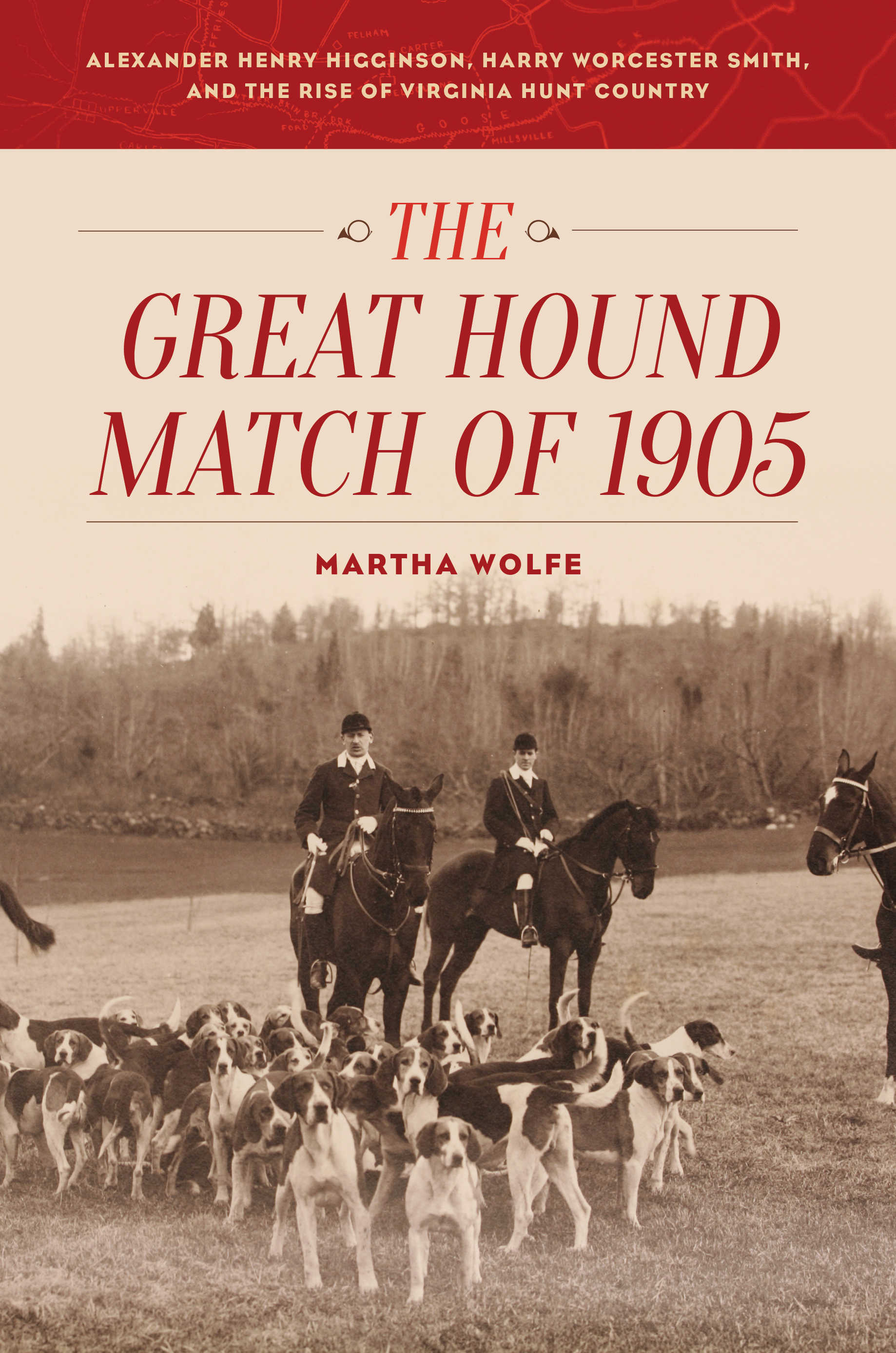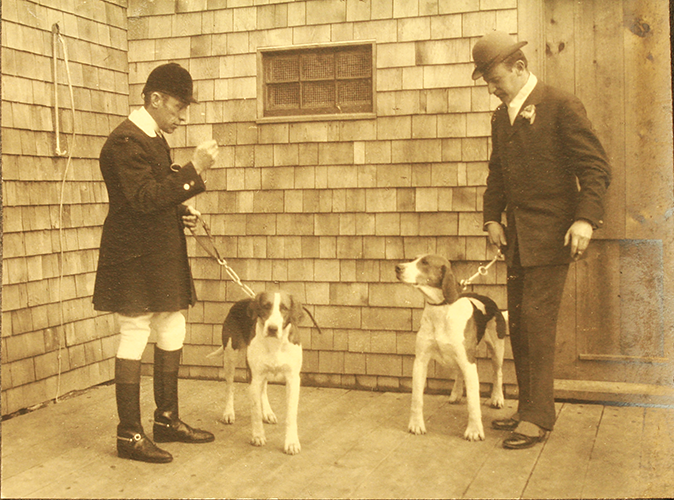THE STORY OF AN AUDACIOUS CONTEST
A metaphoric battle in America’s coming of age ~ psychic independence from Britain’s lingering shroud at the turn of the 20th century.
In November 1905, the peak of foxhunting season: two tiny towns in Virginia’s Piedmont, poor and nearly forgotten after the Civil War and a recent depression, saw the coming of illustrious foxhunters to raise their hopes. There was to be a contest, a Great Hound Match, between two packs of foxhounds, one English and one American…
 PRESS FOR THE GREAT HOUND MATCH OF 1905
PRESS FOR THE GREAT HOUND MATCH OF 1905
“Wolfe writes about history as if it were contemporary…Martha’s portraits of small-town Virginia huntsmen and their horses and dogs have the metaphorical heft and the linguistic elegance of the many others who have written about hunting before her.”
-Susan Cheever, author of E. E. Cummings: A Poet’s Life and American Bloomsbury: Louisa May Alcott, Ralph Waldo Emerson, Margaret Fuller, Nathaniel Hawthorn, and Henry David Thoreau
More Love
KUDOS
∗2012, 2014, and 2016 John H. Daniels Fellow at the National Sporting Library and Museum ∗2016 Library of Virginia People’s Choice Literary Award Finalist for Great Hound Match of 1905∗Guest panelist, 2016 Virginia Festival of the Book in Charlottesville: ∗Guest panelist, 39th Appalachian Studies Association festival, Shepherd College, Shepherdstown, WV. ∗Keynote Speaker, 2016 Virginia Foxhound Association luncheon, Warrenton, VA.
related musings …
What to do with a pig’s ear?
Anything that smells like this, if it had any sense at all, should run.
The Cad~ II
“A Western Union boy came up and handed me a telegram. It was from Mrs. Smith: ‘Don’t ride, get best professional possible,’ signed, ‘Mildred.'”
The Cad ~ I
The race itself started well, but ended badly for Harry.
Find me on the Web:
She Writes: Martha Wolfe
Good Reads: Martha Wolfe
Amazon Author Page: Martha Wolfe




